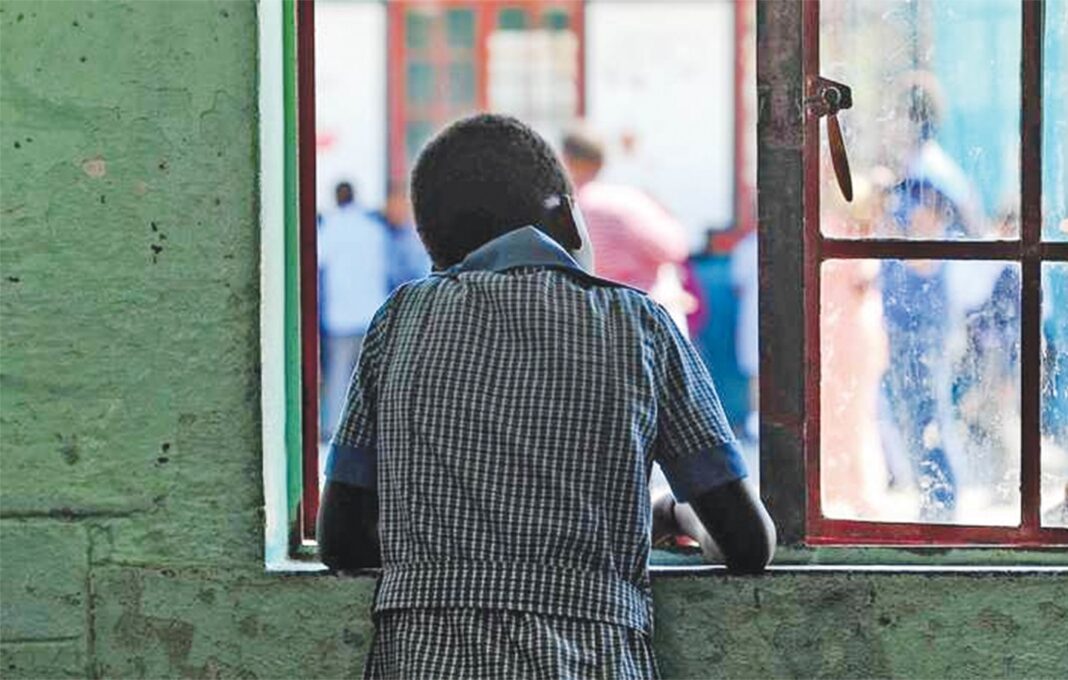By ‘Majirata Latela
The ministry of gender, youth, sport and recreation has made an impassioned plea to the private sector to extend a hand of assistance for provision of a facility to shelter abused women and children for protection.
This after the ministry learned there was a dire need for what it termed transitional homes to accommodate women and children who are survivors of abuse as gender-based violence (GBV) is on surge.
In her call made last Sunday during a dialogue on gender-based violence, the director of the department of gender at the ministry, ‘Matau Futho-Letsatsi clearly revealed that statistical records show that GBV has remarkably shifted to young girls.
She said the number of those girls suffering the GBV is growing.
She indicated that victims of GBV who are currently in both shelters in Maseru and Leribe, are girls below the ages 18 and 20. Many of them, she uncovered, are victims of rape by their close relatives, fathers and ordinary men, some of whom become pregnant.
“We keep these survivors for three months and after that we have to reintegrate them back into their societies. However, in most cases after those three months, some of these survivors do not know where they will go because it becomes difficult for them to go back to the very same people who abused them.
“Some of these survivors have been raped by relatives or their fathers thus making it difficult to take them back to their homes where these perpetrators are. We know how the justice system in Lesotho is operating; perpetrators do not end up in jail while others are later on seen roaming the streets after securing bail from the courts.
“Other challenges that we face in the shelters is lack of money to conduct DNA tests when there is need for that. Government does not have petty cash waiting for us to do the test to sometimes prove that indeed the father is the one who impregnated his own child. We sometimes have to depend on non-governmental organizations to pay for such tests,” Futho said.
She added that of late, school going children are falling prey to the predators who rape them. She warned that those admitted at the shelters do not carry on with their school learning.
It is feared that these paedophiles are likely to know where these children are being harboured and claw on them as they go or return from classes, she remarked.
In addition, she said due to the absence of teachers at the shelters, the girls are forced to miss schooling during the three-month stay.
She added that GBV nowadays manifests itself in different forms as she explained that when the shelters were designed, they were meant for grown-up women, urging for a return to the drawing board to design better facility that will also be suitable for young girls.
According to her the ministry is aware there is a need to establish another shelter in the southern parts of the country.
She said this as she related that during Covid-19 with the 35 beds that are available in each shelter, the need for such protection shelters “doubled as there was a high influx of victims of GBV.”
In June 2021 the publication reported that the shelter for abused women in Maseru was in dire need of financial assistance as sometimes women were being sent back home before their disputes were resolved, just because the shelter was unable to provide for their needs.
Speaking on behalf of the businesses which were present at the event, Metropolitan Lesotho sales manager, Mathabiso Thekiso pleaded with attendees to stop crossing the border for services that can be found in the country. She encouraged people to buy the services that the private sector offers “so that it becomes easy for them to extent a helping hand where there is need.”
One of the officials of the ministry of gender who spoke on condition of anonymity for fear of victimisation, told theReporter newspaper that the ministry seems to be failing to run the place, mainly due to limited budget allocation.
She said for many years, the ministry has failed to provide financial support to the shelter, adding that for long it has been supported by the non-governmental organisations. This support has not been sufficient to cater for those accommodated at the centre.
She also pointed out that the ministry has for years now proved to be failing to fund the shelter with all its needs because of limited budgetary allocation. Some non-governmental organisations have funded the shelter although such support has not been enough.
In some instances, it had to close down due to lack of supply of supplies such as food, cosmetics, fuel and other necessities.
At some stage, the centre closed down in December last year due to lack of power supply. The victims had to find shelter in other places after they were turned away.









